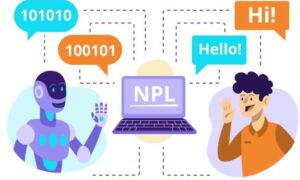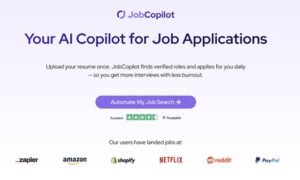The digital age has ushered in an era wherein technology is at the forefront of nearly every industry. Fintech—a portmanteau for the term financial technology—is one of the most dynamic and fastest-evolving sectors in this digital revolution. It encompasses a wide array of innovations that have the potential to reshape the way we manage our finances, conduct business, and invest.
For individuals looking to excel in careers related to fintech, there is no better way to do so than to master assessment techniques that will improve your test performance in preemployment assessments for fintech-related job posts.
A Primer on Fintech And The Competencies Required to Succeed In It
Fintech refers to the use of computing technology to provide innovative financial solutions that will improve and automate financial services. This system can be applied in a wide variety of aspects, including digital payments, peer-to-peer lending, blockchain-based cryptocurrencies, online insurance services, and much more. Doing so will make the processes more streamlined, efficient, accessible, and cost-effective.
The fintech industry had significant growth in recent years, as seen in how this innovative approach is now being used in financial sectors, including banking, payments, insurance, investment, lending, and more. As technology continues to revolutionize various aspects of the financial industry, it opens up numerous opportunities for those who have the aptitude and skills to harness these innovations effectively. To succeed in fintech, individuals need to develop a diverse set of competencies, including technical skills, financial knowledge, and adaptability.
Technical Proficiency: The Foundation of Fintech Mastery
Nowadays, technical proficiency is paramount for anyone aspiring to have a successful career in fintech. One must be proficient in a wide range of skills—from software development and data analysis to cybersecurity and even artificial intelligence. Let’s explore some key areas where technical skills play a pivotal role in fintech.
1) Programming and Coding
Fintech relies heavily on software development. Learning programming languages like JavaScript, Python, or Java is essential for creating financial apps, trading algorithms, and data analysis tools. Moreover, understanding blockchain technology and smart contracts is becoming increasingly important as they revolutionize areas like digital currencies and supply chain finance.
2) Data Analytics
The aptitude for efficiently analyzing and interpreting data is crucial in fintech. Data-driven decision-making is at the core of many financial innovations. Proficiency in data analytics tools and techniques can help individuals make informed financial predictions, identify trends, and develop risk assessment models.
3) Cybersecurity
As the fintech industry deals with sensitive financial information, knowledge of cybersecurity is of paramount importance. Understanding cybersecurity practices and protocols is necessary to protect user data and maintain the integrity of financial systems. Cybersecurity professionals are in high demand to safeguard fintech platforms from malicious attacks.
4) Artificial Intelligence and Machine Learning
AI and machine learning are vital in fintech as they automate tasks, improve customer service, and enhance fraud detection. An understanding of artificial intelligence and machine learning is an asset in fintech careers, especially for roles involving chatbots, recommendation engines, or predictive analytics.
Financial Knowledge: The Bedrock of Fintech Success
While technical proficiency is essential, fintech professionals also need a solid foundation in financial concepts and principles. After all, fintech innovations are designed to enhance financial services, and to do so effectively, one must understand the financial systems they aim to improve.
1) Financial Markets
A comprehensive understanding of financial markets, including stocks, bonds, and commodities, is crucial for fintech professionals working on trading platforms, investment apps, or robo-advisors. Knowledge of market dynamics, risk management, and investment strategies is invaluable.
2) Regulatory Compliance
The fintech industry operates within a complex web of financial regulations. Professionals need to have a firm grasp of financial laws and compliance requirements to ensure their products and services adhere to legal standards. Staying updated on evolving regulations is essential.
3) Risk Management
Fintech innovations often involve managing financial risk, whether in peer-to-peer lending, insurance, or investment management. Understanding risk assessment, mitigation strategies, and financial modeling is vital to creating reliable fintech solutions.
Adaptability and Innovation: The Soft Skills Needed to Navigate Fintech
In the fast-paced world of fintech, adaptability and a penchant for innovation is vital. The fintech landscape is constantly evolving as new technologies and trends emerge. Hence, professionals must be ready to embrace change and explore novel solutions to stay competitive in fintech-related careers.
1) Continuous Learning
Fintech professionals need to commit to lifelong learning. Staying updated on the latest technologies and industry trends is crucial. Online courses, workshops, and certifications can be valuable resources for acquiring new knowledge and skills.
2) Problem-Solving
Fintech professionals often encounter complex financial challenges. The ability to identify problems, analyze them, and devise innovative solutions is a hallmark of a thriving fintech career.
3) Entrepreneurial Mindset
Fintech offers opportunities for entrepreneurial ventures, including creating startups or launching innovative products within established companies. An entrepreneurial mindset is beneficial for those who aspire to bring their fintech ideas to life.
Psychometric Tests and Aptitudes That You Need To Master to Excel In Fintech-related Roles
Psychometric tests are valuable tools for assessing whether a candidate is fit or not for a specific role. These tests provide insights into a candidate’s cognitive abilities, personality traits, and particular skills that are relevant to the job. If you plan on applying to fintech-related posts, these are the tests and aptitudes that you must master:
Cognitive Ability Tests
Numerical Reasoning Tests
These assess a candidate’s ability to work with numerical information, such as financial data, statistical analysis, and problem-solving involving numbers. They are highly relevant in fintech for roles involving data analysis and quantitative decision-making.
Verbal Reasoning Tests
These tests evaluate a candidate’s comprehension, critical thinking, and language skills. They are essential for positions that require effective communication and understanding of financial concepts.
Abstract Reasoning Tests
These tests assess a candidate’s ability to analyze and solve complex problems, which is valuable in fintech roles that involve critical thinking and innovative problem-solving.
Financial Literacy Tests
These assessments measure a candidate’s knowledge of financial concepts, including financial markets, investment strategies, regulatory compliance, and risk management. Candidates for roles in fintech, especially those related to finance and investment, can benefit from financial literacy tests.
Programming and Technical Skills Assessments
For fintech roles that require programming and technical skills, such as software development or data analysis, tests related to coding proficiency in languages like Python, Java, or JavaScript can be used to evaluate a candidate’s technical abilities.
Situational Judgment Tests
These tests present candidates with realistic scenarios they might encounter in fintech roles and evaluate their ability to make decisions and solve problems in such situations. This helps assess their problem-solving and decision-making skills.
Personality Assessments
Personality tests, such as the Myers-Briggs Type Indicator (MBTI) or the Big Five personality traits assessment, can provide insights into a candidate’s personality traits and how they may fit within a fintech team or organization. For example, certain roles in fintech may benefit from candidates with traits like attention to detail, adaptability, or leadership qualities.
Data Analysis and Interpretation Assessments
Fintech professionals often work with data, so assessments related to data analysis and interpretation can evaluate a candidate’s ability to extract insights from data, perform statistical analysis, and make data-driven decisions.
Cybersecurity Aptitude Tests
For roles in fintech that involve cybersecurity and data protection, aptitude tests specific to cybersecurity skills and knowledge can help assess a candidate’s proficiency in this critical area.
Critical Thinking and Problem-Solving Assessments
Fintech often involves solving complex financial and technical problems. Critical thinking and problem-solving assessments can gauge a candidate’s ability to analyze situations and develop innovative solutions.
Preparing for Fintech Success
Fintech offers a wealth of opportunities for individuals looking to unlock their career potential in the digital age. However, mastering the aptitudes required for success in this field is a continuous journey. Technical proficiency, financial knowledge, adaptability, and an entrepreneurial mindset are all critical components of a successful fintech career.
As the fintech industry continues to evolve, those who invest in their skills and knowledge will be best positioned to make a meaningful impact on the way financial services are delivered and consumed. Whether you’re a seasoned professional looking to transition into fintech or a recent graduate embarking on a fintech career, embracing these aptitudes will be vital to unlocking your full career potential in the exciting world of financial technology.



































